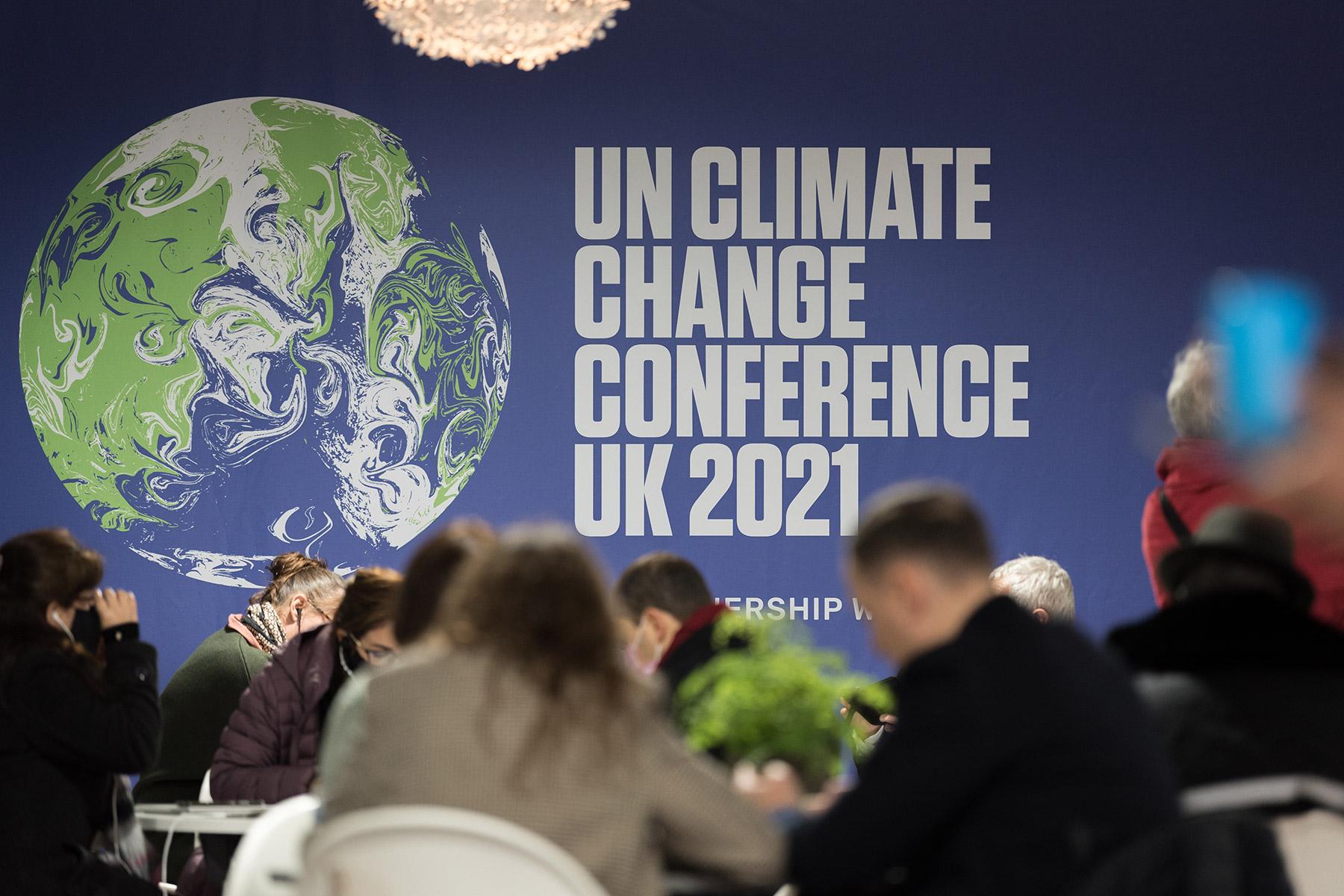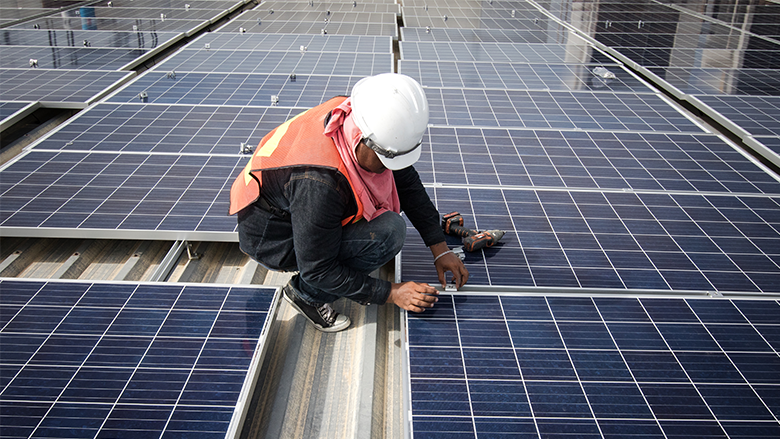Articles
บทความCOP26 อนุสัญญาสหประชาชาติว่าด้วยการเปลี่ยนแปลงสภาพภูมิอากาศ

เทรนด์ที่กำลังกลายเป็นกระแสทั่วโลก และคนรุ่นใหม่ในประเทศที่พัฒนาแล้วต่างเป็นวิตกกังวล คือ ปัญหาการเปลี่ยนแปลงสภาพภูมิอากาศโลก ซึ่งวันนี้มีแนวโน้มจะเลวร้ายขึ้นเรื่อยๆ จนหมดข้อสงสัยว่าเรื่องโลกร้อนเป็นเพียงทฤษฎี อย่างที่เคยเอ่ยอ้างกันมาเมื่อ 5-6 ปีที่แล้ว เพราะหายนะนั้นชัดเจน และรู้สึกรู้สาได้ไม่ใช่เรื่องเล่นๆ อีกต่อไป ทั้ง ปรากฏการณ์คลื่นความร้อนที่ทวีปยุโรป และอเมริกาต้องเผชิญเหตุ รุนแรง และยาวนานอย่างไม่เคยเป็นมาก่อน เช่นเดียวกับจำนวนและความรุนแรงของพายุก่อในทุกมุมของมหาสมุทร แม้แต่ประเทศไทยของเราก็ได้รับผลพวงนี้เช่นกัน ตัวอย่างคือภัยพิบัติน้ำท่วมในช่วงฤดูฝนที่ผ่านมา
แล้วประเทศ (รัฐบาล) ของเรา และประเทศอื่นๆ กำลังช่วยกันแก้ไขปัญหานี้อย่างไร ใครที่ตามข่าวสิ่งแวดล้อมน่าจะคุ้นตากับ สัญญา COP26 เป็นอย่างดี แต่สำหรับใครยังไม่ทราบว่าสัญญานี้สำคัญอย่างไร ลองตามอ่านความหมายในเนื้อความด้านล่างดูสักหน่อย …และจะรู้ว่าไม่ต้องรอถึงระดับรัฐบาล หรือนานาชาติ เราก็สามารถใช้หลักคิดนี้ในการลงมือทำกับพื้นที่เล็กๆ ได้เช่นกัน
COP ย่อมาจาก Conference of the Parties เป็นการประชุมของบรรดาสมัชชาประเทศภาคีอนุสัญญาสหประชาชาติว่าด้วยการเปลี่ยนแปลงสภาพภูมิอากาศ โดยประเทศไทยเองก็เข้าร่วมเป็นสมาชิกกับสมัชชานี้ (ตัวเลข 26 เป็นตัวแทนจำนวนครั้งที่จัดประชุม ซึ่งโดยปกติจะมีการจัดขึ้นทุกปีต่อเนื่อง (ยกเว้นปีที่แล้วที่ถูกเลื่อนออกไปเนื่องจากปัญหาการแพร่ระบาดของเชื้อโควิด-19)) สำหรับการประชุมครั้งล่าสุดเพิ่งจัดขึ้นเมื่อช่วงกลางเดือนพฤศจิกายนที่ผ่านมา ณ เมืองกลาสโกว์ ประเทศสกอตแลนด์ ในวันที่ 1-12 พ.ย.ที่ผ่านมา
การประชุมที่โด่งดังและเป็นที่รู้จักคือ COP21 อันนำมาสู่ Paris Agreement 196 ประเทศได้ตกลงที่จะร่วมมือกันรักษาอุณหภูมิโลกไม่ให้สูงขึ้นเกิน 2 องศาเซลเซียส โดยตั้งเป้าไว้ที่ 1.5 องศาเซลเซียส เคยมีการคาดการณ์จากนักวิทยาศาสตร์ไว้ว่าหากไม่เกิดความร่วมมือระหว่างประเทศ ภายในปี ค.ศ. 2100 อุณหภูมิของโลกจะเพิ่มขึ้นถึง 3 องศาเซลเซียส
การประชุม COP26 กว่า 200 ประเทศได้ประกาศแผนการลดการปล่อยมลพิษภายในปี 2030
โดยรัฐบาลไทยก็เข้าร่วมกับการประกาศครั้งนี้ และได้ประกาศไว้ว่าประเทศไทยจะดำเนินการ Carbon Neutrality ให้สำเร็จในปีค.ศ.2050 (พ.ศ. 2593) และ Net Zero Carbon ให้ได้ภายในปี ค.ศ. 2065 (พ.ศ. 2608) ซึ่งนักวิชาการ และ NGO หลายฝ่ายยังกังขาในเรื่องแผนการดำเนินงาน รวมไปถึงการแก้ไขปัญหาที่ยังไม่แตะประเด็นสำคัญซึ่งผลต่อการปลดปล่อยมลพิษ อาทิ การใช้ถ่านหินในการผลิตไฟฟ้าล้นเกินความจำเป็น ซึ่งหากพิจารณาจากตัวเลขไฟฟ้าสำรองของประเทศที่มีอยู่ราว 43-45% สูงกว่ามาตรฐานสากลที่กำหนดไว้อยู่ที่ 15% นั้นหมายความว่า ประเทศไทยสามารถลดกำลังการผลิตไฟฟ้า และเลิกใช้ถ่านหินได้จริง โดยไม่กระทบกับความมั่งคงด้านพลังงาน หรือรวมไปถึงนโยบายการส่งเสริมการลดใช้พลังงานฟอสซิล การส่งเสริมรถไฟฟ้าให้มีใช้อย่างแพร่หลาย ฯลฯ ซึ่งประเด็นเหล่านี้ต่างเชื่อมโยงไปถึงการสร้างและกำหนดนโยบายของภาครัฐ และความจริงจังต่อการจัดการปัญหาทั้งในระยะสั้นและระยะยาว
ประเด็นสำคัญที่เกี่ยวข้อง และเราสามารถมีส่วนร่วมได้ในฐานปัจเจกบุคคล ส่วนหนึ่งคือให้ความสำคัญ และตระหนักว่ากับปัญหาการเปลี่ยนแปลงสภาพภูมิอากาศนั้นได้เกิดขึ้นแล้ว และการใช้ชีวิตของเราสามารถเป็นส่วนหนึ่งของการลดปัจจัยสาเหตุ และแก้ไขปัญหานี้ได้ ผ่านการลดการใช้พลังงานที่มีที่มาจากฟอสซิล เปลี่ยนมาใช้รถไฟฟ้า การเพิ่มพื้นที่สีเขียว กระตุ้นให้ท้องถิ่นมีนโยบายในเรื่องการจัดการการปลดปล่อยคาร์บอน และก๊าซเรือนกระจก รวมไปถึงการสื่อสารบอกต่อสร้างความร่วมมือร่วมใจ จากจุดเล็กๆ ถักทอเป็นความร่วมมือในชุมชนของเราเอง ขยายไปสู่ระดับเมือง และจังหวัดต่อไป
- นายกฯกล่าวถ้อยแถลงต่อที่ประชุมระดับผู้นำ COP26 ประกาศเจตนารมณ์ไทยพร้อมยกระดับการแก้ไขปัญหาภูมิอากาศอย่างเต็มที่ด้วยทุกวิถีทาง (https://www.thaigov.go.th/news/contents/details/47700)
- โลกร้อน: การประชุม COP26 ในกลาสโกว์ตกลงอะไรกันได้บ้าง (https://www.bbc.com/thai/international-59264622)
- สรุปจากเสวนา ‘นายกฯไป COP26 = สภาพพ!!’ (https://www.greenpeace.org/thailand/story/21223/climate-live-conclusion-thailand-cop26/)
- Image Source (https://www.lutheranworld.org/news/cop26-church-leaders-call-increased-ambition-climate-justice)
Article 1 COP26 United Nations Convention on Climate Change Big things can be done in small ways
A worldwide issue, one which younger generations in developed countries are increasingly concerned about, is that of global climate change. Today, it has become so severe as to dispel any doubt whether global warming is theory or fact, as was the case 5-6 years ago. Today, the potential for catastrophe is clear, and we can feel the issue is of utmost importance. The heat wave phenomenon in both Europe and America presented events so violent and protracted like never seen before, not to mention the increasing frequency and intensity of storms forming in all corners of the ocean. Even our country is being affected – the flood disaster during the previous rainy season being a notable example.
How is our country (government) and other countries helping to solve this problem? Anyone who follows environmental news will be familiar with the COP26 agreement. But for those unaware of the importance of this agreement, try to determine the meaning in the text below…and understand that we do not have to wait for government or international intervention – we can also apply these concepts to work on a smaller scale.
COP, or Conference of the Parties, is a meeting of the Conference of the Parties and United Nations Convention on Climate Change. Thailand is itself a member of this assembly (the number 26 represents the number of meetings held) which is usually held every year continuously (the previous year being an exception, postponed due to the COVID-19 pandemic). The most recent meeting was held in Glasgow, Scotland, between 1st – 12th November.
The most well-known meeting was COP21, which led to the Paris Agreement. 196 countries agreed to co-operate to keep global temperature increase below 2°C, with a target of 1.5°C. Scientists say that without international co-operation, the global temperature will increase by 3°C by the year 2100.
At COP26, over 200 countries announced plans to reduce emissions by 2030.
The Thai government also joined this agreement and announced Thailand’s dedication to achieve carbon neutrality by the year 2050 (BE 2093) and net zero carbon by 2065 (BE 2608). Many academics and NGOs remain skeptical about this operational plan, especially regarding solving problems and consideration of important issues relating to emissions, such as excessive use of coal for electricity generation which, if gauged by the amount of national backup power, remains around 43 – 45% – higher than the international standard of 15%. This means Thailand is capable of reducing power generation capacity and completely ceasing coal use without affecting energy security, in addition to implementing policies to promote reduced use of fossil fuels, widespread use of electric train systems, etc. These issues are connected with the creation and determination of government policies and their sincerity in dealing with both short-term and long-term issues.
Relevant key points: we can also participate on an individual basis, part of which involves first realizing that the problem of climate change is already occurring; the way we live our lives can contribute to reduction of causal factors; the problem can be solved through reduced use of fossil fuels/increased use of electric transportation and addition of green space; localities should be encouraged to develop policies to manage carbon emissions and greenhouse gases, including communication by word-of-mouth, facilitating co-operation in small ways that interweaves co-operation from our own communities to the city-level, and then provincial-level.
- Prime Minister delivers a statement to COP26 Leaders' Meeting declaring Thailand's commitment to fully alleviate the problem of climate change by all means (https://www.thaigov.go.th/news/contents/details/47700)
- Global Warming: what could be done at COP26 in Glasgow? (https://www.bbc.com/thai/international-59264622)
- Summary of discussion 'Prime Minister attends COP26 = What!! (https://www.greenpeace.org/thailand/story/21223/climate-live-conclusion-thailand-cop26/)
- Image Source (https://www.lutheranworld.org/news/cop26-church-leaders-call-increased-ambition-climate-justice)









